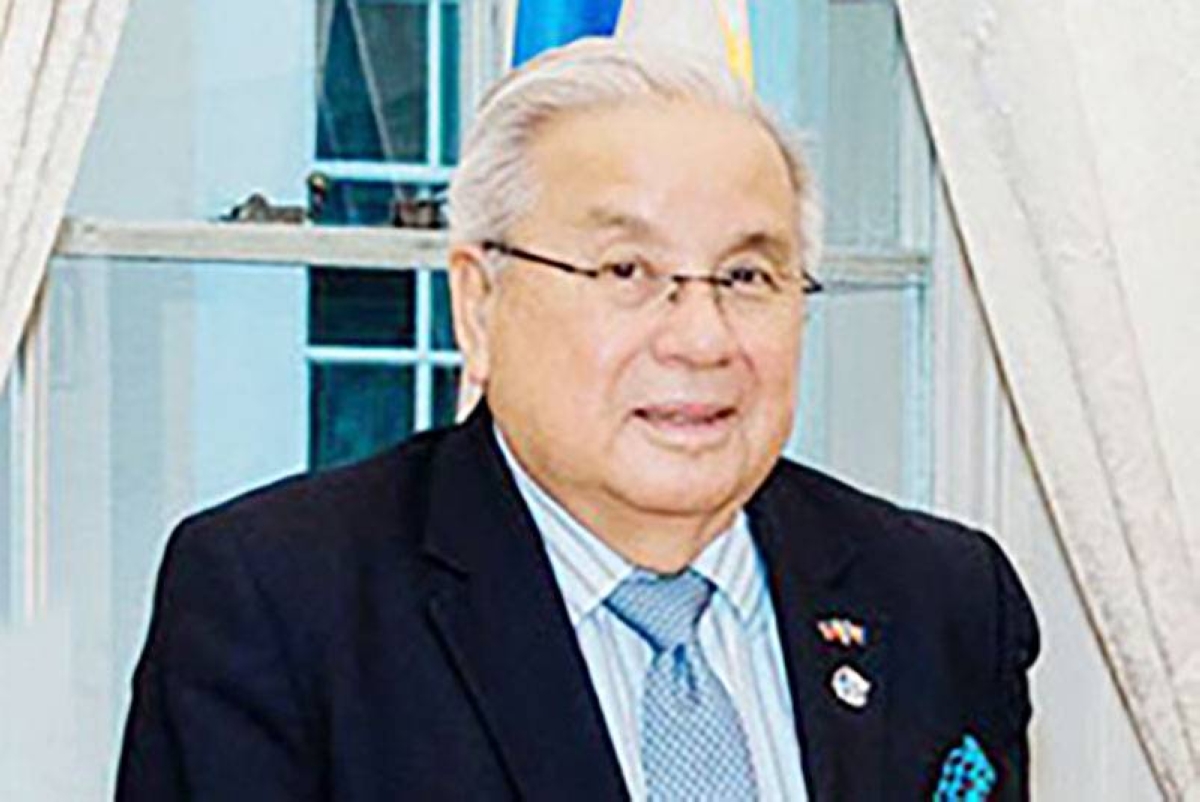CLIMATE resilience and food security were highlighted as the top development priorities for the Philippines by its Permanent Representative to the United Nations, Antonio Lagdameo, during a recent session of the UN Security Council. The Department of Foreign Affairs shared that Lagdameo emphasized the country’s commitment to addressing climate change and ensuring food security through strategic planning and international cooperation.
Lagdameo informed the council that the Philippines has adopted the National Climate Change Action Plan, which outlines the country’s strategic direction until 2028. This plan prioritizes various aspects, including food security, water sufficiency, ecological and environmental stability, among others. By focusing on these areas, the Philippines aims to strengthen its resilience to the impacts of climate change and secure its food supply for the future.
As Lagdameo addressed the council, he emphasized the Philippines’ first-hand experience with the harsh realities of climate change. The country has been repeatedly affected by devastating typhoons, rising sea levels, and threats to its biodiversity, ecosystems, agriculture, food security, and livelihoods. These challenges have compelled the Philippines to take bold and decisive actions, rooted in equity and a firm commitment to the global rules-based order and multilateralism.
In his statement, Lagdameo stressed the importance of all countries fulfilling their agreements and commitments made under the UN Framework Convention on Climate Change (UNFCCC) and the Paris Agreement. He called for climate justice to be ensured, highlighting the need for global cooperation in addressing the urgent climate crisis.
The meeting, led by Guyanese President Mohamed Irfaan Ali, aimed to promote a better understanding of the linkages between food insecurity and climate change in the context of peace and security. The UN Secretary-General, António Guterres, UNFCCC Executive Secretary Simon Stiell, Deputy Director-General of the Food and Agricultural Organization Beth Bechdol, and Director of Global Initiatives and Head of Peace, Climate, and Sustainable Development of the International Peace Institute Jimena Leiva Roesch were also present.
The Philippines’ commitment to climate resilience and food security aligns with its recognition of the interconnectedness between these issues and broader development goals. By prioritizing these areas, the country acknowledges the need to address the immediate and long-term impacts of climate change on its population, economy, and environment.
In a country where agriculture plays a vital role in the economy and livelihoods of many, ensuring food security is crucial. Climate change poses significant challenges to agricultural productivity, making it essential to develop adaptive strategies that can withstand the changing climate patterns. By integrating climate resilience into agricultural practices, the Philippines aims to safeguard the availability and accessibility of nutritious food for its citizens.
Furthermore, the Philippines recognizes the importance of international cooperation in addressing climate change. The country actively participates in global climate negotiations, advocating for equitable and ambitious actions to mitigate greenhouse gas emissions and adapt to the changing climate. By emphasizing the need for compliance with international agreements, the Philippines seeks to hold all nations accountable for their commitments and contribute to a sustainable and resilient future.
In conclusion, the Philippines’ focus on climate resilience and food security as key development priorities demonstrates its commitment to addressing the challenges posed by climate change. By adopting a strategic plan and advocating for international cooperation, the country aims to build resilience, ensure food security, and contribute to the global efforts in combating climate change. Through these actions, the Philippines is taking a proactive approach to safeguarding its people, environment, and future generations from the impacts of climate change.







